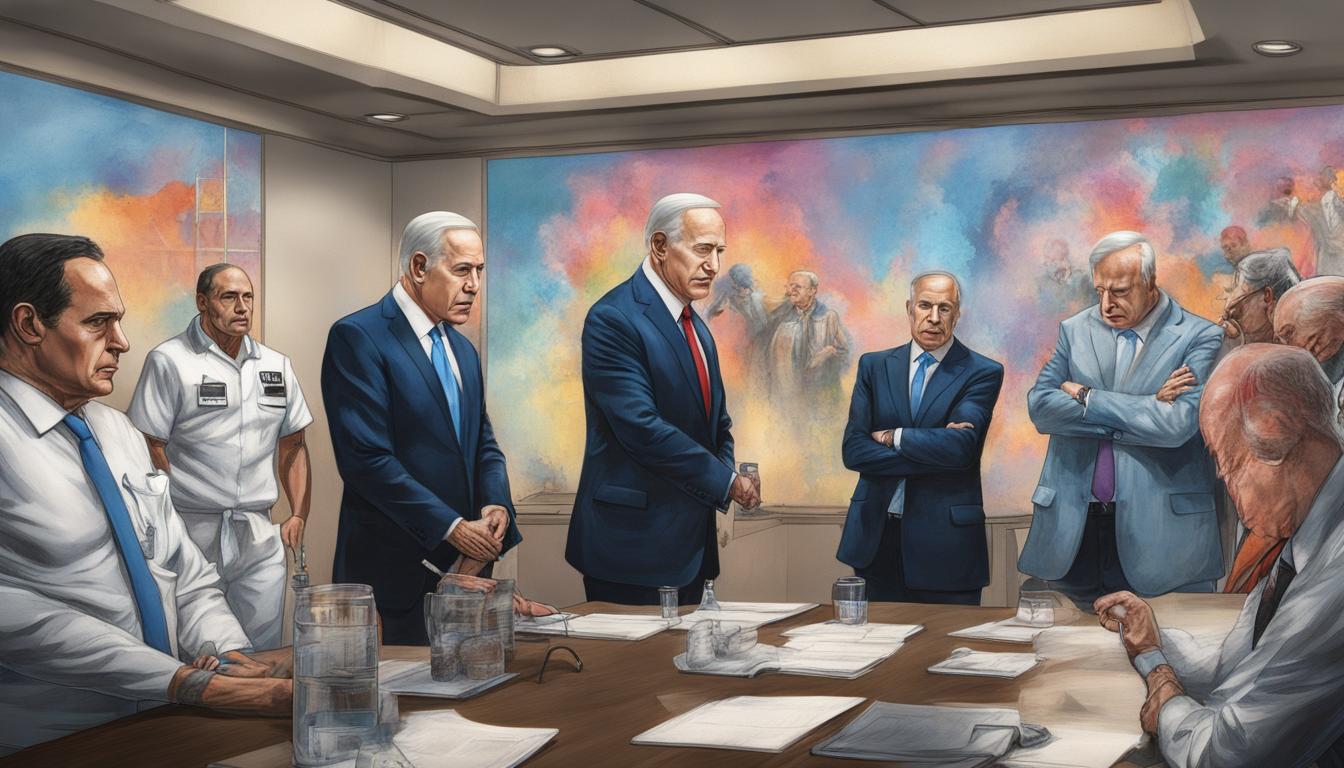As Netanyahu allies with far-right ministers, triggering international sanctions and internal discord, US President Joe Biden halts military support, signalling a major shift in US-Israel relations amid calls for a ceasefire and reassessment of foreign aid.
Israeli Prime Minister Benjamin Netanyahu is facing political challenges from within his coalition government due to diverging positions with far-right ministers such as Itamar Ben-Gvir and Bezalel Smotrich. Ben-Gvir, the national security minister with a history of incitement to racism, and Smotrich have hardened Israeli policies in the West Bank, which has drawn international sanctions. With Netanyahu aligning with these far-right elements, public opinion polls in Israel indicate a preference for prioritizing hostage release over military escalation in Rafah, suggesting a growing rift between the government’s stance and public sentiment.
In Rafah, Gaza, the healthcare system is on the brink of collapse amid ongoing conflict, with hospitals like Abu Yousef al-Najjar being overwhelmed with casualties and facing shortages of medical supplies and fuel. The closure of crossings, including the vital Rafah crossing with Egypt, has exacerbated the situation, leading to warnings from the World Health Organization about the imminent depletion of fuel reserves vital for maintaining health services.
Meanwhile, U.S. President Joe Biden has halted a shipment of US-made bombs to Israel in response to Netanyahu’s plans for a military offensive in Rafah, marking a significant shift in U.S.-Israel relations. This decision, symbolic of Biden’s stance against escalating violence, has been met with criticism from Israeli politicians but intends to influence peace talks and encourage a ceasefire.
Simultaneously, Democrats in the United States, including Senator Elizabeth Warren, are increasingly vocal about re-evaluating the country’s approach to Israel. This includes the possibility of conditioning foreign aid, as well as assessing Israel’s military actions in Gaza, which could potentially have broader implications for U.S.-Israel relations and ongoing peace efforts in the region.













